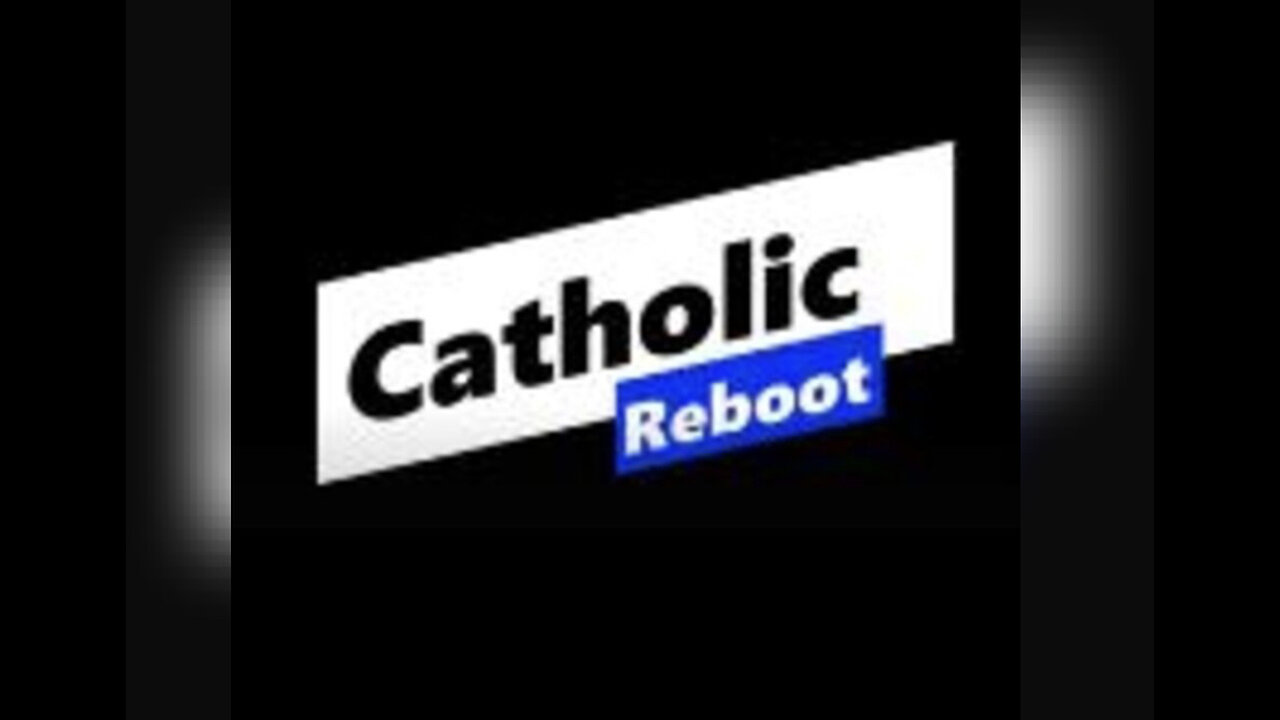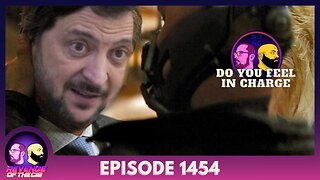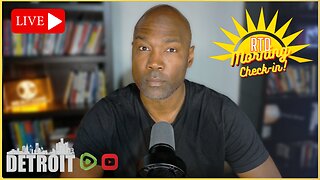Premium Only Content

Episode 1998: During his Trial: You have no authority over me - Part 14
Sharon: We are onto the 14th of the 22 statements Christ made during his passion. Welcome to CR, where we delve into the depths of this scripture verse John 19:10-11, exploring its timeless wisdom and relevance in our lives today by examining the profound dialogue between Pontius Pilate and Jesus Christ.
The scene is set in Jerusalem during the turbulent hours leading up to the crucifixion of Jesus Christ. Pontius Pilate, the Roman governor, he finds himself face to face with the Son of God, standing trial before him. Let's dive into the dialogue:
"So Pilate said to him, 'You will not speak to me? Do you not know that I have authority to release you and authority to crucify you?' Jesus answered him, 'You would have no authority over me at all unless it had been given you from above. Therefore he who delivered me over to you has the greater sin.'"
This exchange between Pilate and Jesus is laden with theological significance and reveals profound truths about divine authority, human responsibility, and the sovereignty of God.
Walt as you do, can you dissect Pilate's assertion first.
Walt: Sure. In his statement, Pilate emphasizes his worldly authority, asserting his power to either release or crucify Jesus. From a human perspective, Pilate indeed possessed political power as the representative of Roman rule in Judea. However, Jesus' response challenges this notion of human authority, redirecting attention to a higher realm of sovereignty. Now how about you explain Christs response?
Sharon: I can. Jesus, in his reply, acknowledges Pilate's authority but makes it clear that this authority is derivative, originating from a higher source God Himself. By stating, "You would have no authority over me at all unless it had been given you from above," Jesus asserts the divine origin of all authority. Even the mightiest rulers of the earth derive their power ultimately from God, the ultimate sovereign. This brings me great comfort today when I look around at all that is going on in our own country and the world as a whole. These rulers actually think their power to corrupt or power to abuse the people comes from them. But Jesus' statement points the ultimate sovereignty of God over all human authorities. Despite the corruption and selfishness rampant in worldly rulership, God remains the ultimate source of authority. This recognition encourages believers to maintain trust in God's overarching plan and providence, even in the face of seemingly unjust or oppressive human governance.
But above that we as faithful must approach it from a Prayerful Engagement. In light of God's sovereignty, we as believers are called to engage with the political realm prayerfully and discerningly. This involves seeking God's guidance and wisdom in navigating the complexities of governance and advocating for justice and righteousness within society. Through prayer, individuals can align themselves with God's will and actively work towards positive change in their communities and nations.
Walt what are your thoughts?
Walt: Its interesting that you moved to prayer as the solution. I also see us as somewhat Prophetic Witness. Jesus' interactions with earthly authorities, including his confrontation with Pontius Pilate, serve as a model of prophetic witness. We as believers are called to speak truth to power, courageously denouncing corruption, injustice, and oppression wherever they are found. This prophetic witness may take various forms, including advocacy, activism, and speaking out against wrongdoing, all grounded in the moral principles of love, justice, and compassion taught by Jesus Christ. Jean do you see something more?
Sharon: I do. I see a certain amount of Responsibility and Accountability. Although we can acknowledge the divine origin of authority, we as believers must also hold human rulers accountable for their actions. In democracies, this could involve active participation in electoral processes, holding elected officials accountable to ethical standards, and advocating for transparency and accountability in governance. Additionally, believers can support initiatives aimed at combating corruption and promoting good governance within their communities and nations. I also think that Hope and Redemption are at play. Despite the prevalence of corruption and selfishness in human governance as we see today, we as believers are called to maintain hope in the transformative power of God's grace. Just as Jesus' crucifixion led to the ultimate redemption of humanity, believers trust in God's ability to bring about justice and righteousness, even in the most challenging of circumstances.
This hope inspires us as believers to persevere in our efforts to promote positive change and work towards the establishment of God's kingdom on earth.
In essence, applying Jesus' words to our contemporary world requires a balance between acknowledging the divine sovereignty over human authorities and actively engaging in efforts to promote justice, righteousness, and accountability within society. Through prayer, prophetic witness, responsible citizenship, and unwavering hope, believers can navigate the complexities of our corrupt world while remaining grounded in the transformative power of God's love and grace.
Walt: This profound theological truth carries immense implications for our understanding of authority structures in the world. It reminds us that earthly authorities are accountable to a higher divine authority and are called to exercise their power in alignment with God's will and justice.
Sharon: Even more so, Jesus' words unveil the concept of divine providence, emphasizing that even in the midst of human affairs, God's sovereign plan unfolds. The events leading to Jesus' crucifixion were not a result of human manipulation alone but were orchestrated by the divine will for the redemption of humanity.
Walt: Yet, amidst this acknowledgment of Pilate's authority, Jesus does not absolve him of responsibility. In the final part of his response, Jesus declares, "Therefore he who delivered me over to you has the greater sin." Here, Jesus points to the culpability of those who betrayed him, the religious leaders who handed him over to Pilate.
Sharon: Jesus' statement actually points to the principle of moral accountability. While Pilate may have been a pawn in the larger narrative of salvation, he still bore responsibility for his actions. Likewise, all individuals, regardless of their position or power, are accountable for their choices before God.
Walt: From a traditional Catholic perspective, this passage invites us to reflect deeply on the nature of authority, the sovereignty of God, and the moral responsibility inherent in our actions. It challenges us to recognize the divine origin of all authority and to align our lives with God's will, even in the face of worldly pressures.
Sharon: As we think about the dialogue between Pilate and Jesus, may we be reminded of the ultimate authority of God, who reigns supreme over all earthly powers. And may we strive to live our lives in accordance with His divine plan, trusting in His providential care and seeking His guidance in all things.
Walt: Thank you for joining us on this enlightening journey through scripture. We hope you found this exploration of John 19:10-11 enriching and thought-provoking. Join us next time as we continue to uncover the timeless truths of Christ words through his passion. Until then, may God bless you abundantly and go out there this Holy Week and convert somebody.
-
 LIVE
LIVE
Dr Disrespect
7 hours ago🔴LIVE - DR DISRESPECT - PGA TOUR 2K25 LAUNCH DAY
4,433 watching -
 LIVE
LIVE
Nerdrotic
3 hours ago $5.93 earnedMarvel PANIC MODE! Kathleen Kennedy GONE?! Hollywood DEI Dead | Friday Night Tights 342 Nick Freitas
5,711 watching -
 1:46:26
1:46:26
Vigilant News Network
5 hours agoDiddy’s Epstein Moment: Is the Fix Already In? | The Daily Dose
34K2 -

Revenge of the Cis
3 hours agoEpisode 1454: Do You Feel In Charge
14.8K4 -
 1:05:17
1:05:17
In The Litter Box w/ Jewels & Catturd
22 hours agoEPSTEIN: PHASE ONE | In the Litter Box w/ Jewels & Catturd – Ep. 752 – 2/28/2025
60.9K39 -
 1:49:10
1:49:10
The Quartering
5 hours agoTrump DESTROYS Zelensky To His Face, Trump Assassin Accomplice & Epstein File Debacle
107K68 -
 15:36
15:36
Tactical Advisor
6 hours agoMUST HAVE AR15 Upgrades for Under $100
61K4 -
 28:11
28:11
Rethinking the Dollar
7 hours agoTrump(verse): Trump Family Going All In On Crypto
3862 -
 21:49
21:49
Mrgunsngear
3 hours ago $0.08 earnedBarrett M107A1 .50 Cal Semi-Automatic Rifle Review
1.49K2 -
 1:14:18
1:14:18
Tucker Carlson
7 hours agoDr. Richard Bosshardt Reveals Deadly Truth: Most Surgeons Aren’t Fit to Practice. Here’s Why.
133K82